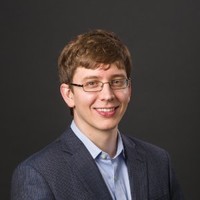
Aaron M. Ring
- Courses0
- Reviews0
- School: Yale University School of Medicine
- Campus:
- Department: Biology
- Email address: Join to see
- Phone: Join to see
-
Location:
333 Cedar St
New Haven, CT - 06510 - Dates at Yale University School of Medicine: -
- Office Hours: Join to see
Biography
Yale University School of Medicine - Biology
Resume
2008
Doctor of Medicine (MD)
Stanford University School of Medicine
Doctor of Philosophy (PhD)
Thesis advisors: K. Christopher Garcia and Irving Weissman
Structural Biology
Stanford University School of Medicine
2004
Bachelor of Science (BS)
Awarded the Paul Sigler memorial prize as the top undergraduate student in the Molecular Biophysics and Biochemistry Department.
Molecular Biophysics and Biochemistry
Yale University
Magna cum laude
Master of Science (MS)
Thesis advisor: Richard Lifton
Molecular Biophysics and Biochemistry
Yale University
Molecular Biology
Protein Engineering
Cancer
Drug Discovery
Immunology
Biophysics
X-ray crystallography
Structural Biology
Biochemistry
Directed Evolution
Engineered SIRPα variants as immunotherapeutic adjuvants to anticancer antibodies
Cancer cells avoid immune destruction by macrophages using a protein called CD47
which acts as a molecular \"don't eat me signal.\" Using directed evolution
we engineered a variant of CD47's receptor
SIRPα
to antagonize CD47 with extremely high affinity. The high-affinity SIRPα molecules show efficacy as monotherapy for mouse models of human cancer when fused to antibody-Fc. However
as small (14 kDa) monomers
the variants act as powerful adjuvants to anti-cancer antibodies
including Rituxan and Herceptin. As antibodies are a rapidly growing class of therapeutics
the high-affinity SIRPα proteins have great therapeutic potential for a wide variety of clinical scenarios.
Engineered SIRPα variants as immunotherapeutic adjuvants to anticancer antibodies
Adrenaline-activated structure of β2-adrenoceptor stabilized by an engineered nanobody
Mechanistic and structural insight into the functional dichotomy between IL-2 and IL-15
Activation and allosteric modulation of a muscarinic acetylcholine receptor
Interleukin-2 (IL-2) is a pro-inflammatory cytokine that is used clinically in the treatment of metastatic melanoma and renal cell carcinoma. Though it can induce a long-lasting remission in a small fraction of patients
IL-2 is limited by life-threatening side-effects such as pulmonary edema. In this study
we engineered IL-2 to have enhanced anti-tumor efficacy
while decreasing its toxic side effects
thereby increasing its therapeutic window and potentially extending its clinical effectiveness.
Exploiting a natural conformational switch to engineer an interleukin-2 'superkine'
Ring
Simcha Therapeutics
Yale School of Medicine
Stanford University School of Medicine
Yale University
New Haven
Connecticut
Founder
Simcha Therapeutics
I completed my PhD in Structural Biology in the laboratories of K. Christopher Garcia and Irving Weissman concurrently with my medical training. My research focused on using directed evolution to engineer new immunomodulatory agents for the treatment of cancer and autoimmune disease. Additionally
I developed new methodologies with Brian Kobilka's laboratory to extend combinatorial techniques to integral membrane proteins such as G-protein coupled receptors.
Stanford University School of Medicine
Yale School of Medicine
Assistant Professor of Immunobiology
Yale School of Medicine
During my undergraduate training
I performed research on the molecular genetics of hypertension in the laboratory of Richard Lifton.
Beckman Scholar
Yale University
PCT/US2011/066911
High Affinity Sirp-Alpha Reagents
NIH Director's Early Independence Award (DP-5) Recipient
National Institutes of Health
Phi Beta Kappa
Yale University
Forbes 30 under 30 in Healthcare
Forbes Magazine
Pew-Stewart Scholar
The Pew Charitable Trusts
Barry M. Goldwater Scholar
Barry M. Goldwater Foundation
Ruth L. Kirschstein National Research Service Award
National Institutes of Health
Beckman Scholar
Arnold and Mabel Beckman Foundation
Robert T. McCluskey Yale Scholar
Yale School of Medicine
Paul Sigler Memorial Award
Yale Dept. of Molecular Biophysics and Biochemistry